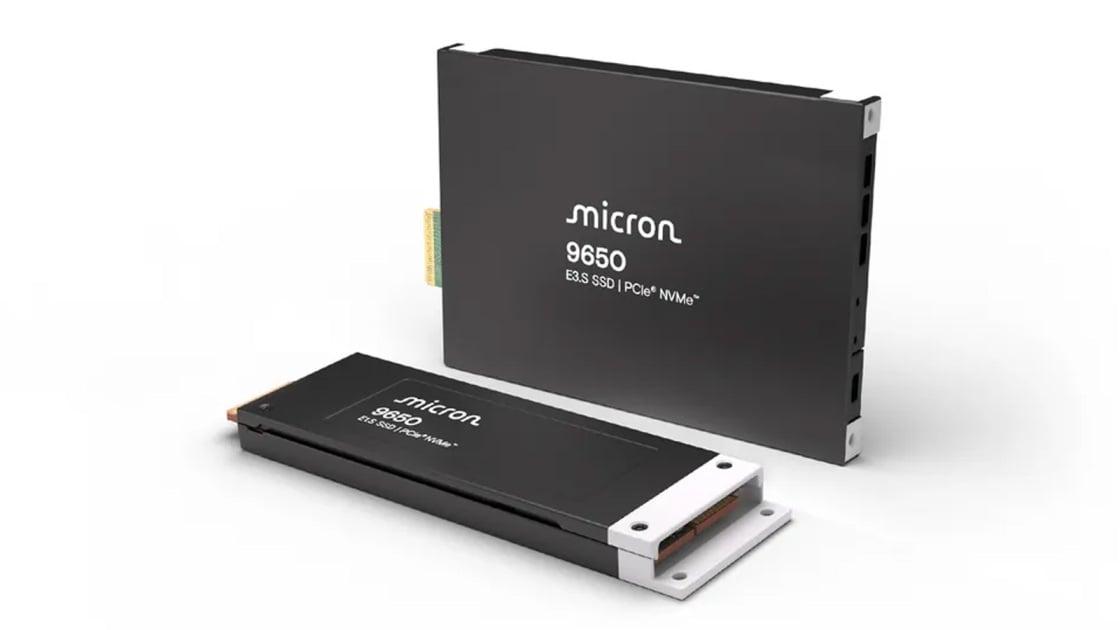UFS 5.0: Next-Gen Storage Promises Double Speed for AI-Driven Smartphones
2 Sources
2 Sources
[1]
UFS 5.0 storage promises to be twice as fast for AI's sake, hopefully enticing Google Pixel
Just a couple of months after Google Pixel finally adopted faster UFS 4.1 storage in select Pixel 10 devices, the UFS 5.0 standard has been announced with storage that's twice as fast, and the reason for that speed boost will hopefully catch Google's attention a little sooner. UFS 4.0 was announced back in 2022 with a big speed boost to 4.2GB/second, up from UFS 3's roughly 2.1GB/second. But, with the upcoming UFS 5.0 standard, a much bigger jump is in store. JEDEC, the organization in charge of the UFS standard, has announced that UFS 5.0 will see increased performance of up to 10.8GB/second. That's nearly a 160% increase over UFS 4.0. Why the huge leap? JEDEC specifically says that the faster performance will "meet AI demands." With that in mind, hopefully Google is listening. Pixel phones have been stuck on UFS 3.1 since 2021's Pixel 6 series, but the Pixel 10, at least in its higher storage tiers, finally moved up to UFS 4.0. The difference in performance hasn't been tremendous, but it's been an overdue change nonetheless. But with AI being the reason for the massive leap that is UFS 5.0, we can only hope that Google is taking a closer look at the tech for future Pixels, as AI is kind of Google's whole pitch. As for when UFS 5.0 starts hitting production, that's not been mentioned. The list of highlights for the UFS 5.0 standard includes:
[2]
This next-gen storage format could soon become a reason to upgrade your smartphone - here's why
This massive speed boost could be especially beneficial for AI Storage speeds aren't something we talk about much in the context of smartphones - and nor are they likely a major factor in purchase decisions for most people. But that might soon change, as in the era of AI, faster storage can be very beneficial - and a very fast new storage standard has just been announced. The Joint Electron Device Engineering Council (JEDEC) has just announced that UFS 5.0 is coming soon (via Phone Arena). This is the next version of Universal Flash Storage, and it's set to provide a massive boost in speed. According to this announcement, it will be capable of data transfer speeds of 10.8GB per second, which is almost double the 5.8GB per second offered by UFS 4.0. That increase could be beneficial any time your phone needs to read or write things on its storage, but it might be particularly useful for AI. In fact, that 10.8GB per second speed has specifically been reached in order to meet the demands of AI, so with UFS 5.0, AI apps and features could perform noticeably faster - and as AI tools become more advanced and demanding, that will be all the more important. As well as higher speeds, UFS 5.0 also promises power-efficient performance, so it shouldn't drain your phone's battery too much, and it will be backwards compatible with UFS 4.x hardware. So, when buying your next phone, you might first want to check whether it includes UFS 5.0 storage or not, as that could be a major differentiator. Sadly, right now it's unclear when the first phones with UFS 5.0 will land, as no smartphone makers have yet announced such a handset. But based on past form, there's a good chance Samsung will be among the first to embrace it - so perhaps we'll see it in the Samsung Galaxy S26 series. Apple, meanwhile, takes the typically Apple approach of not using the UFS standards at all, and instead opting for slower storage, so there's not much hope of the iPhone 18 series adopting it. Google might with the Pixel 11, but on the Pixel 10 series, you get different storage speeds depending on how much storage you opt for, so it's possible that higher capacities will get UFS 5.0 while lower capacities will have earlier versions. Hopefully, though, UFS 5.0 will be widely and rapidly adopted in the smartphone world, because it sounds like a worthwhile upgrade.
Share
Share
Copy Link
JEDEC announces UFS 5.0 storage standard with speeds up to 10.8GB/second, specifically designed to meet AI demands. This development could significantly impact smartphone performance and user experience.
UFS 5.0: A Leap in Storage Speed for AI-Driven Devices
The Joint Electron Device Engineering Council (JEDEC) has announced the upcoming Universal Flash Storage (UFS) 5.0 standard, promising a significant leap in storage speed for smartphones and other devices. This new standard is set to deliver data transfer rates of up to 10.8GB per second, nearly doubling the performance of its predecessor, UFS 4.0
1
2
.Meeting AI Demands
The substantial speed increase in UFS 5.0 is not just a natural progression but a targeted response to the growing demands of artificial intelligence in mobile devices. JEDEC specifically cited the need to "meet AI demands" as the driving force behind this performance boost
1
. As AI applications become more advanced and resource-intensive, faster storage speeds could significantly enhance the performance of AI features on smartphones.Impact on Smartphone Market
The introduction of UFS 5.0 could potentially reshape the smartphone market landscape. While storage speeds have not traditionally been a major factor in consumer purchase decisions, the AI-focused improvements of UFS 5.0 might change this dynamic. Industry experts suggest that UFS 5.0 compatibility could become a key differentiator for high-end smartphones, potentially influencing upgrade cycles
2
.Related Stories
Adoption by Manufacturers
As with previous storage standards, the adoption of UFS 5.0 is likely to vary among smartphone manufacturers:
- Samsung, known for being an early adopter of new technologies, might incorporate UFS 5.0 in its upcoming Galaxy S26 series.
- Google, which recently adopted UFS 4.0 in select Pixel 10 models, might consider a faster transition to UFS 5.0 given its focus on AI capabilities
1
. - Apple, traditionally using its own storage solutions, is not expected to adopt the UFS standard
2
.
Additional Features and Considerations
Beyond the headline-grabbing speed increase, UFS 5.0 offers other notable features:
- Power-efficient performance, ensuring the faster speeds don't come at the cost of battery life.
- Backward compatibility with UFS 4.x hardware, potentially easing the transition for manufacturers
2
.
While the announcement of UFS 5.0 is exciting, it's important to note that no specific timeline for its implementation in consumer devices has been provided. The impact of this new standard on real-world smartphone performance and AI capabilities remains to be seen, but it undoubtedly represents a significant step forward in mobile storage technology.
References
Summarized by
Navi
[1]
Related Stories
Samsung Launches PM9E1: A High-Performance SSD Optimized for AI Applications
04 Oct 2024•Technology

Micron Leads Memory Innovation with World's First 1γ LPDDR5X for AI-Driven Smartphones
05 Jun 2025•Technology

Samsung Galaxy S26 Ultra Rumored to Feature Cutting-Edge RAM for Enhanced Performance
09 Aug 2025•Technology

Recent Highlights
1
OpenAI secures $110 billion funding round from Amazon, Nvidia, and SoftBank at $730B valuation
Business and Economy

2
Pentagon accepts OpenAI's autonomous weapons restrictions after blacklisting Anthropic
Policy and Regulation

3
Trump orders federal agencies to ban Anthropic after Pentagon dispute over AI surveillance
Policy and Regulation





